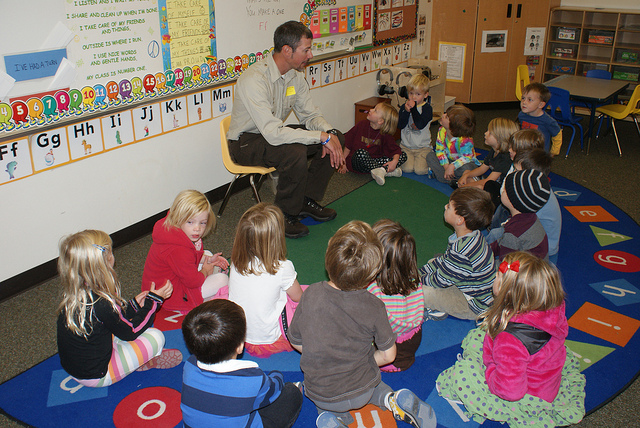Early childhood education refers to the formal teaching of young children by people outside of the family setting. Early childhood usually means before the age of normal schooling in the United States.
Early childhood education often focuses on children learning through play. It has been thought that children learn more efficiently and gain more knowledge through play-based activities such as dramatic play, art, and social games.¹
Preschool and kindergarten emphasize learning around the ages of 3 to 6 years old. The distinction between childcare centers and kindergartens has disappeared in countries that require staff in different childcare facilities to have teaching qualifications.¹
Much of the first two years of a child’s life are spent in the creation of a sense of self. This is a crucial part of a child’s ability to determine how they should function in relation to other people.² Early care should be emphasize links to family, home culture, and home language.
Children who lack sufficient nurturing, nutrition, interaction with a parent, and stimulus during their crucial young period may be left with developmental deficits, as has been seen in Russian and Romanian orphanages.³ Children must receive attention and affection to develop in a healthy manner. More than 2.5 hors a day of formal education does not greatly add to child development outcomes, especially when it detracts from other expenses and family contact.¹
References:
1. Winner, Melinda (28 January 2009). “The Serious Need for Play.” Scientific American.
2. Oatley, Keith; Jenkins, Jennifer M (2007). Understanding Emotions (2nd ed.). Malden, Massachusetts: Blackwell Publishing. p. 211.
3. Groark, Christina J., et al (2008). “Special Section on Russian Orphanages.” Infant Mental Health Journal (Michigan Association for Infant Mental Health). 29 (4).
Image source: USFWS Mountain-Prairie on Flickr
© BrainMass Inc. brainmass.com June 30, 2024, 10:15 am ad1c9bdddf